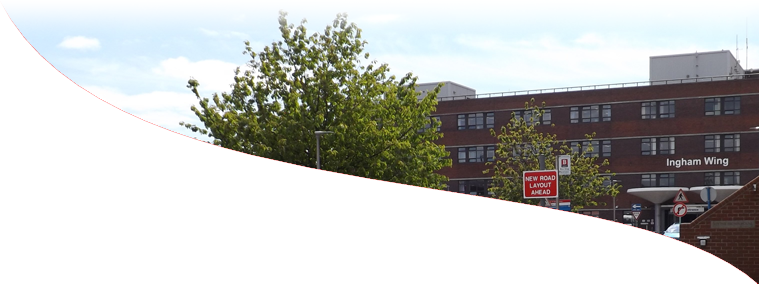Privatisation of public services takes place when the government either outsources those services to the private sector or transfers ownership of those services to the private sector. Both of these are happening within the NHS.
World Health Organisation Definition
A process in which non-governmental actors become increasingly involved in the financing and/or provision of health care.
Mechanisms of NHS privatisation
- The creation of market mechanisms (the internal market ) for the distribution of funding within the NHS.
- Outsourcing of services to the private sector through commissioning (buying) care from companies.
- Sale of services to the private sector (E.g. pathology and plasma services).
- Sale of assets to the private sector (E.g. land and buildings, see Naylor Report ).
- The use of Private Finance Initiatives .
- The creation of Foundation Trusts .
- Encouraging services to become private not-for-profit enterprises such as mutuals and social enterprises .
- The reduction of the role of government in the regulation of health provision (see 2012 Health and Social Care Act ).
- Limiting access to services previously provided by the NHS, thereby encouraging people to seek treatment privately.
One of the critical factors driving privatisation is the saturation of the US health care market (see Medicare and Accountable Care Organisations ), forcing US corporations to expand globally (see UnitedHealth ).
The malign effects of privatisation on those who provide health care are insidious and multi-faceted, as corruption in the US health system shows. In the US the professional covenant with the patient is reduced to explicit contracts. The commodity relationship that private health provision creates between doctor and patient means that doctors may deny treatment when someone can't pay, or they may recommend treatment that may be unnecessary if their patient can pay. Both of these market principles are growing like a cancer within our health service (see McKinsey and Specsavers ).
A 2013 YouGov Poll showed that 84 percent of the public would prefer to see the NHS run as a not-for-profit public service, with 80 percent ready to pay higher taxes to ensure that if need be. Just 7 percent wanted privatisation. There has never been a mandate to privatise any part of the NHS.
Professor Arnold Relman former editor of the New England Journal of Medicine said:
The continued privatisation of health care and the continued prevalence and intrusion of market forces in the practice of medicine will not only bankrupt the health care system, but also will inevitably undermine the ethical foundations of medical practice and dissolve the moral precepts that have historically defined the medical profession.
Partial list of other public services that have been privatised in the UK:
1980s
| Institution | Date of Privatisations |
|---|---|
| Council Housing | 1980 to present |
| British Sugar | 1981 |
| British Aerospace | 1981, 1985 |
| Associated British Ports | 1983, 1984 |
| Sealink | 1984 |
| British Telecom | 1984, 1991, 1993 |
| Trustees Savings Bank | 1985 |
| British Shipbuilders | 1985 to 1986 |
| British Gas | 1986 |
| Rolls-Royce | 1987 |
| British Airways | 1987 |
| Unipart | 1987 |
| British Steel | 1988 |
| Municipal Bus Companies | 1988 to present |
| Water Companies | 1989 |
1990s
| Institution | Date of Privatisations |
|---|---|
| National Grid | 1990 |
| East Midland Electricity | 1990 |
| London Electricity | 1990 |
| Yorkshire Electricity | 1990 |
| Girobank | 1990 |
| Liverpool Airport | 1990 to 2001 |
| Scottish Hydro-Electric | 1991 |
| Birmingham Airport | 1993 |
| East Midlands Airport | 1993 |
| London Busses | 1994 |
| British Coal | 1994 |
| British Rail | 1994 to 1997 |
| Bournemouth Airport | 1995 |
| Cardiff Airport | 1995 |
| Bristol Airport | 1997, 2001 |
| Luton Airport | 1997, 2001 |
| Student Loan Portfolios | 1998, 1999, 2013 |
2000s
| Institution | Date of Privatisations |
|---|---|
| British Nuclear Fuels | 2000 to 2009 |
| British Air Traffic Services | 2001 (50% privatised) |
| BBC Broadcast | 2002 |
| BBC Costumes and Wigs | 2008 |
2010s
| Institution | Date of Privatisations |
|---|---|
| Schools | 2010 to present |
| BBC Audiobooks | 2010 (85% privatised) |
| Northern Rock | 2012 |
| Fire Service College | 2013 |
| Royal Mail | 2013, 2015 |
| Lloyds Banking Group | 2013, 2014, 2015 |
| Royal Bank of Scotland Group | 2015 |
| East Coast Trains | 2015 |
| Eurostar International Ltd | 2015 (50% privatised) |
| Food and Environment Research Agency | 2015 (75% privatised) |
| Government Pipelines and Storage System | 2015 |


